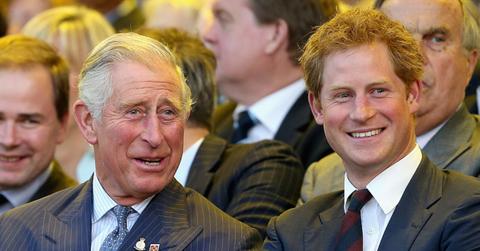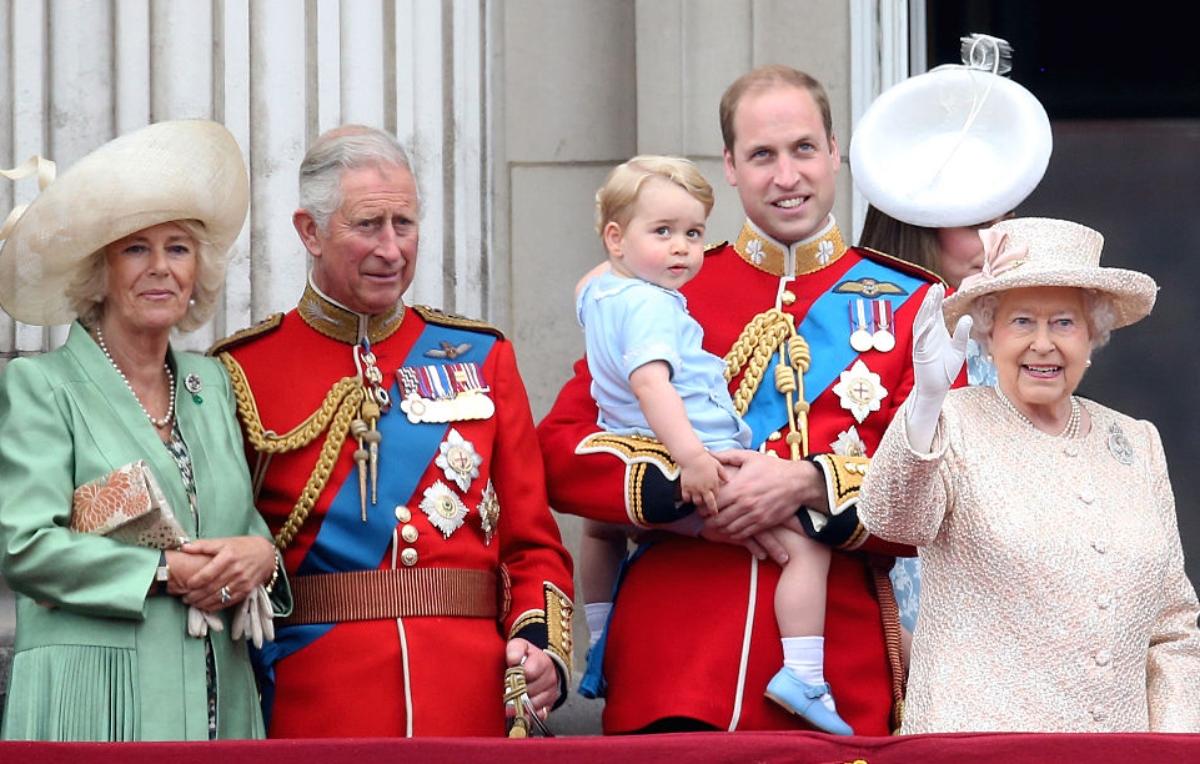Queen Elizabeth Paid Taxes Voluntarily — Royal Family Is Exempt From Most Taxes
How the royal family members finance their lifestyles is based largely on property owned by the monarchy and funded by taxpayers. But does the royal family pay taxes as well?
Sept. 12 2022, Published 12:57 p.m. ET

King Charles III and Prince Harry in 2014, before Harry left most of his royal duties behind.
In 2021, Forbes estimated that the British Royal Family’s net worth was $28 billion. However, just as the net worth of billionaires like Elon Musk are often tied up in stocks, the wealth of the royal family is largely tied up in real estate. Since the members of the monarchy benefit from U.K. taxpayer money, it’s natural to wonder, does the royal family pay taxes?
The New York Times reported on the family’s wealth and how it will change hands now that Queen Elizabeth II has died. Along with the numerous benefits royals like King Charles III, Prince William, and other family members receive, they are exempt from paying most taxes.

Royal family members do pay some taxes, but much of this is deemed voluntary.
The Queen paid taxes voluntarily.
According to the official royal finance website, “The Queen pays tax.” The site says that she “voluntarily” began paying income tax and capital gains tax in 1992, so since 1993 she had been paying taxes like anyone else. In addition, the Queen has “always been subject to Value Added Tax and pays local rates on a voluntary basis.”
The finances of the monarchy are more complex than the average citizen’s, with income received from taxpayers, properties that can theoretically never be sold, and royal duties tied up with the financial benefits wrought by royal birthright.
In June, the annual Sovereign Grant Report was released. It details expenditures by the royal family from taxpayer funds that go to the Sovereign Grant. For 2021–2022, the monarchy calculated the total Sovereign Grant to be £86.3 million, or £1.29 per person in the nation.
As Marie Claire reported, a notable shift in the royal family’s finances was evident in Prince Harry and Meghan Markle’s decisions. They were shown to have received no benefit from U.K. taxpayer funds for that year, and to have reimbursed taxpayers for the cost of renovations to their home.
Seeing how Harry and Meghan had become independent of the royal finances likely prompted taxpayers to question how much money the rest of the royal family gets from taxpayers, without being subject to the same taxation as ordinary citizens.
The royal family technically surrenders all of the revenue from the Crown Estate, a real estate portfolio estimated at $19.2 billion. However, it also receives the Sovereign Grant, which the NYT said is about 25 percent of the profits from the Crown Estate. So, it would seem the monarchy is still making out pretty well.
Income from the Duchy of Lancaster and the Duchy of Cornwall is somewhat taxed.
Two of the funds, in addition to the Crown Estate, that keep the royal family going are the Duchy of Lancaster and the Duchy of Cornwall. The Duchy of Cornwall was then-Prince Charles’s fund, which will likely pass to William now that Charles is king.
Income from the Duchy of Lancaster “forms a part of the Queen’s Privy Purse income.” It’s the funds used by the sovereign as private income, but is used for official reigning duties as well.
According to the royal website, income from both of these duchies is taxed “to the extent it is not used for official purposes.” It seems this income, if it’s used for what the royal family members would call “personal” purposes, is then taxable.
